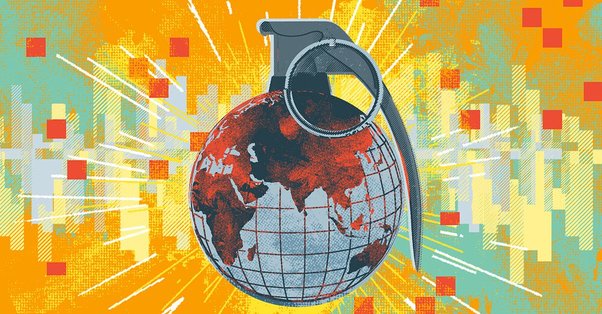EU imports of Russian-origin fuels from an Azerbaijani-owned refinery have grown dramatically in 2024, according to new Global Witness analysis of Kpler data.
The EU is now the largest buyer of seaborne oil products from the STAR refinery, located in western Turkey.
During the first three months of 2024, the EU imported over 1.2 million tonnes of oil products from STAR, over 75 percent of the refinery’s seaborne exports. This is up from 40 percent during the same period in 2022, when Russia invaded Ukraine.
The vast majority of STAR products imported by the EU this year have likely been made from Russian oil.
During Q1 2024, over 90 percent of the crude oil from which STAR made products like jet fuel, petroleum, and diesel came from Russia, according to Global Witness’ analysis of Kpler data.
During this period, STAR imported an estimated $1.2 billion worth of Russian oil, compared with $500 million during Q1 2022.
STAR is held jointly by the government of Azerbaijan and the oil giant SOCAR, which is owned by the government and upon which the petrostate heavily relies.
Azerbaijan will host this year’s UN climate conference. Its organisers include multiple representatives working for either SOCAR or the country’s energy ministry, including Elnur Soltanov, who is both a deputy energy minister and CEO of the climate conference.

While Russian crude has become increasingly important to STAR, the refinery has become increasingly important to Russia. During Q1 2024, only four refineries in the world received more shipborne Russian crude than STAR – two in India, two in China. Before the war, STAR ranked 18th.
Azerbaijan has been conspicuously muted in its criticism of Russia’s invasion of Ukraine. And in October of last year, SOCAR agreed to buy crude from Russia’s Lukoil after borrowing $1.5 billion from the company.
Western companies appear also to be complicit in the EU’s Russian buys. Nearly 10 percent of STAR’s seaborne oil products sent to the EU may have been transported on tankers chartered by UK oil giant BP, according to Global Witness analysis of Kpler data.
Because the EU has no sanctions on the products, such transports would be legal. But it could well be in breach of BP’s internal rules on Russian oil. In 2022, the company said it would not buy jet fuel “in whole or in part, produced” in Russia.
Azerbaijan was supposed to step in and replace Russia in Europe’s energy supply, but instead is acting as a wide-open back door for Putin’s crude to flood into the EU
Jonathan Noronha-Gant, senior campaigner at Global Witness said: ‘’As the EU guzzles ever more fuel from STAR, the refinery’s Azeri owners are stepping up imports of Russian blood oil to satisfy Europe’s demand. This trade completely undermines the EU’s sanctions on Russian oil, while the Azeri regime makes a killing.
"Azerbaijan was supposed to step in and replace Russia in Europe’s energy supply, but instead is acting as a wide-open back door for Putin’s crude to flood into the EU. There can be no clean trade in Russian oil products – the EU should immediately halt purchases of Russian-origin oil products, including the STAR refinery’’.
The EU’s Foreign Affairs High Representative Josep Borrell has called for Europe to stop buying oil products made from Russian crude, singling out India as a refiner. The EU is set to debate its next round of sanctions on Russia in June but has not so far proposed a ban on Russian-origin oil products.
Global Witness asked STAR about its purchases of Russian crude and BP about its shipments that may have transported oil products derived from Russian crude. Neither company responded.
Notes
- Nearly all EU Member States that imported from STAR in Q1 2024 brought in more than during the same period in 2022. Romanian imports increased 1,400 percent, Slovenia nearly 775 percent, and the Netherlands nearly 725 percent. The largest importers by volume during Q1 2024 were Romania (378,000 tonnes), the Netherlands (378,000 tonnes), and Italy (260,000 tonnes).
- STAR Russian crude import calculations are based upon seaborne shipments from Kpler, which estimates that the refinery receives most, if not all, of its crude oil shipments by tanker.
- STAR oil product export calculations are based upon seaborne shipments from Kpler. They include only seaborne exports from the STAR Refinery installation and do not include any possible exports of products produced by the refinery but transported elsewhere in Turkey before export by land or vessel. As such, actual STAR export figures may differ. However, comparing STAR export volumes reported by Kpler and the Turkish government, it appears likely that either all or a very large portion of STAR’s exports have been accounted for.
- Values of Russian crude oil purchased by STAR are estimated from prices published by Refinitiv, which provides free on board (FOB) prices for Urals crude leaving the Russian terminals of Primorsk and Novorossiysk. Cargos exported from the Primorsk or Ust Luga terminals were assigned Primorsk FOB prices, cargos exported from Novorossiysk terminals were assigned Novorossiysk FOB prices. Values calculated based on prices of cargoes on each date of arrival at the STAR Refinery.


